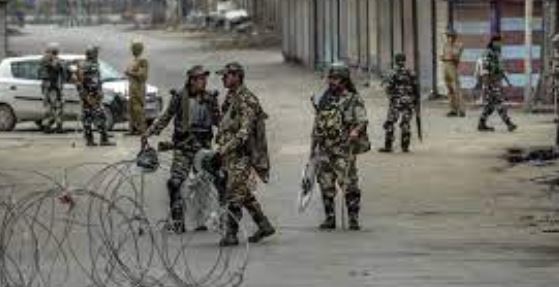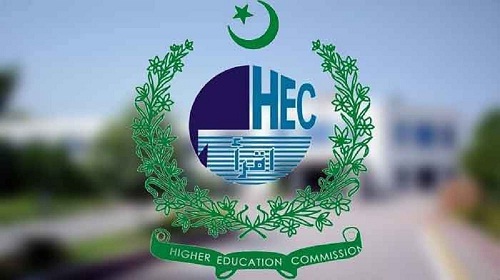Speakers reaffirm support to Kashmirs’ RSD; slam Indian atrocities

WASHINGTON, NOV 05 (DNA) – Speakers at a special event organized by the Pakistan Embassy in Washington to mark the ‘Kashmir Black Day’ reaffirmed their solidarity with the Kashmiri people and called on India to end its gross human rights violations in occupied Jammu and Kashmir.
They also condemned India’s unilateral and illegal actions of August 5, 2019, to annex the disputed territory of Jammu and Kashmir, and its security lockdown and communications blackout in the disputed territory.
Senator Mushahid Hussain Syed, chairman of Pakistan Senate’s Defence and Defence Production Committees, was the keynote speaker at the well-attended occasion.
Pakistan’s Ambassador to the US, Dr. Asad Majeed Khan, Professor at Georgetown University, Ambassador (R) Toquir Hussain, Secretary General of the World Kashmir Awareness Forum (WKAF), Ghulam Nabi Fai, Professor at George Washington University Medical Centre, Dr. Imtiaz Khan, and an American Political Analyst and Human Rights Activist, Col. (R) Wesley Martin, were among those who addressed the gathering.
A Special documentary featuring the context of the Kashmir Black Day, Indian illegal actions of August 05, 2019 and human rights abuses by Indian occupation forces was also screened. In his opening remarks Ambassador Asad Khan thanked the audience for participating in the event to express solidarity with Kashmiri brothers and sisters suffering under Indian occupation.
He reiterated Pakistan’s continued moral, political and diplomatic support to the Kashmiri people in their struggle for right to self-determination against the worst form of repression unleashed by the Indian security forces for several decades.
The ambassador specially lauded the role played by the Pakistani and Kashmiri American community in highlighting India’s human rights violations in occupied Kashmir. Senator Mushahid Hussain Syed expressed Pakistan’s unflinching support for the just struggle of the Kashmiri people for their inalienable right to self-determination as envisaged in the UN Security Council Resolutions.
He emphasized that Pakistan would avail every possible political, diplomatic and legal option to achieve this objective. Senator Mushahid Hussain Syed also drew the world’s attention to the grave threat to peace and security posed by Indian actions and called for the international community, particularly the US, to ask India to end its human rights violations in Kashmir and take measures to reduce tensions in the region.
The senator also said that despite political differences, all political parties in Pakistan stand together on issues like Kashmir, Palestine, nuclear programme and the China-Pakistan Economic Corridor (CPEC).
WKAF Secretary General and prominent Kashmiri leader, Ghulam Nabi Fai, posed the question: How long will the world powers watch in silence as India carries out the genocide in Kashmir?.
This is a question the Kashmiris are asking too, he said, adding that world powers should persuade India to stop the killings; end repression; revoke Domicile Law which is designed to change the demography of Jammu and Kashmir; and fulfill their promise to Kashmiri exercise so that a new era of good will, peace & prosperity can dawn into Subcontinent.
Meanwhile, Fai urged the United Nations to establish the necessary conditions for the holding of a free and impartial plebiscite in Jammu & Kashmir.
The Biden Administration, he said, must take a principled and practical stand on the Kashmir issue and affirm its support for Kashmiris’ human rights and resolve the root cause of the India-Pakistan crisis — the continued denial of the Kashmir people’s right to self-determination, added.
Ambassador (R) Toquir Hussain, Georgetown University professor, said Pakistan needs to enhance its influence with the international community, especially big powers — more so the United States — through improved Islamabad-Washington relationship.
Ironically, he said, by slamming the door shut on the international community, India may have overreached itself diplomatically. “In trying to make Pakistan irrelevant to Kashmir, India has made it even more relevant,” Ambassador Toquir Hussain said.
Dr. Imtiaz Khan, Professor at George Washington University Medical Center, said that denial of right to self-determination has resulted in the suffering of the people of Kashmir. The unresolved Kashmir dispute posed an imminent threat to the security of the region, he said.
Dr. Khan gave detailed account of the numerous massacres in Kashmir, including Chattisingpora, Beijbehara, Mashali Mohala, Sopore, Hnadwara, Gawkadal. He also reminded the audience about Kunan-Poshpora when Indian army gang raped over 100 innocent women, between the ages of 10 to 70.
Justice is yet to be delivered, despite the lapse of 30 long years, he pointed out. And world powers do not realize that the deadly cost of their silence and inaction in this regard.
Colonel (R) Wesley Martin, an Iraqi war veteran, highlighted the human rights abuses being committed by the Indian army in Kashmir. He said that the United States intervention could bring about halt to the atrocities if it takes a firm stand against India’s illegal actions in Kashmir, particularly since August 5, 2019.
India’s claim that Kashmir is its internal matter has been rejected by the United Nations which stands for the Kashmir conflict to be resolved under UN Charter and the applicable UN Security Council resolutions, he said. Among those present were: Saleem Qadri, Sardar Zarif Khan and Shoaib Irshad. = DNA
=======================
Related News

‘Do-or-die’: PTI sets 90-day ultimatum for anti-govt drive to achieve ‘political goals’
LAHORE: Khyber Pakhtunkhwa Chief Minister Ali Amin Gandapur has labelled the Pakistan Tehreek-e-Insaf (PTI)’s newlyRead More

Favoritism clouds HEC’s official delegation to Germany
From Our Correspondent ISLAMABAD, JUL 13 /DNA/ – The Higher Education Commission (HEC) is facingRead More


Comments are Closed